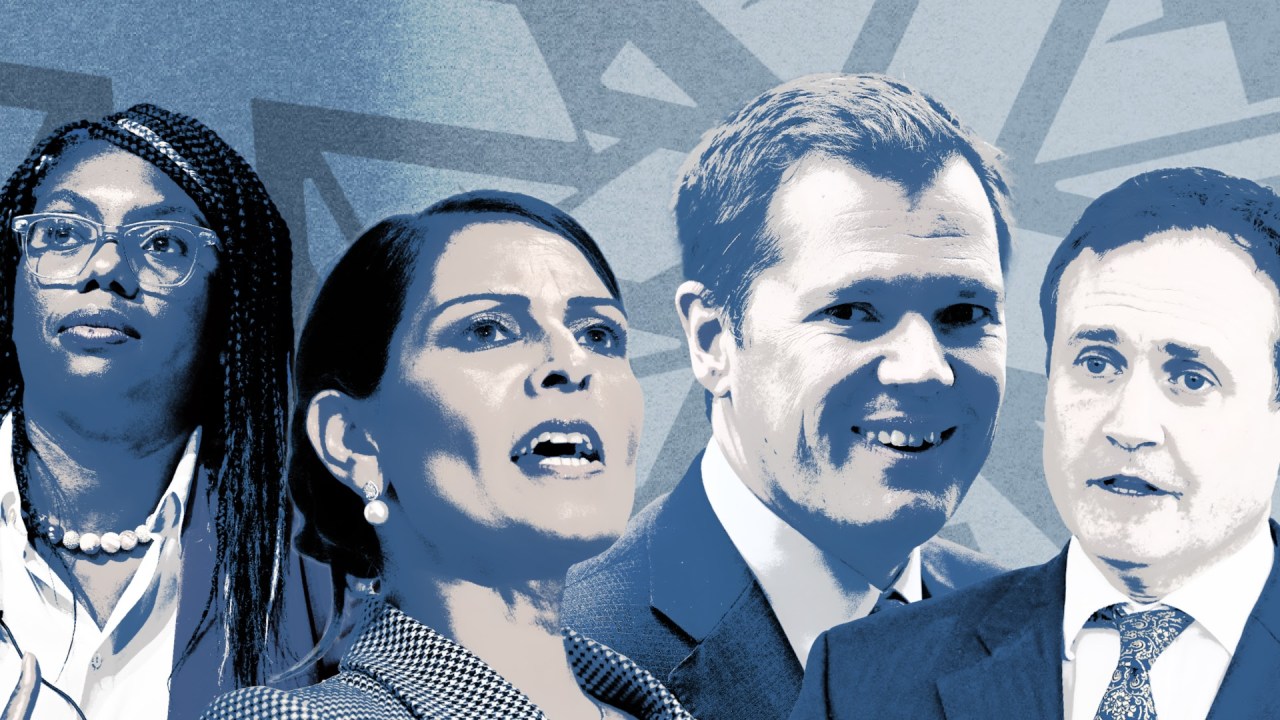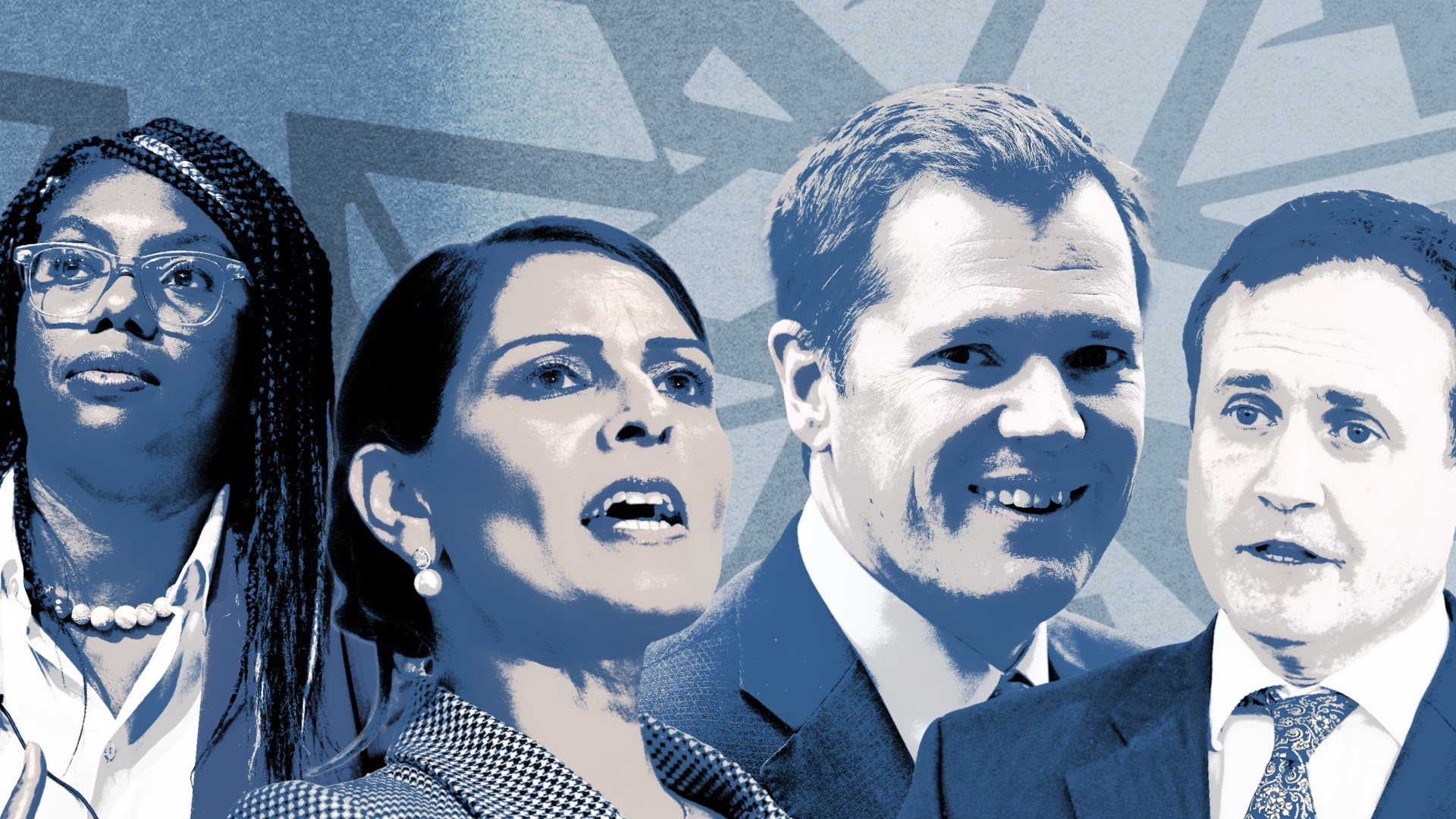Before migrating to Wiltshire where I will be for August, I had a friendly dinner with a clutch of Conservative aficionados. Inevitably the conversation turned to the leadership contest and, having disposed of the poison pill, Suella Braverman, they asked me which candidate, as a Labour person, I would fear most. This was quite a challenging question. James Cleverly is clearly a nice chap but his fondness for blokeish chat may prove career-shortening. Robert Jenrick’s views seem to depend on who he is talking to. Ditto the vanilla Tom Tugendhat. Mel Stride is inoffensive and otherwise undefinable. I doubt Priti Patel’s appeal will reach beyond a segment of her party. Then there is Kemi. I recalled attending a dinner that had a rather prestigious guest of honour where Kemi arrived late, sat down noisily, asked a none-too-bright question and left early. But, but. Being noisy is not a disqualification when, as opposition leader, you are struggling for attention. She is not afraid to speak her mind (although an occasional filter might be handy) or to call out the sort of ‘wokery’ many voters dislike. I noticed my companions turning in her direction.
It is going to be difficult for any new Tory leader to assemble a credible governing project given where the party is starting from. There is also a possibility that Labour will be even harder to defeat in 2028 than in 2024. This year, Labour’s central task was to allow the ruthless tactical voting system to do its work and cut a swathe through Tory ranks. Next time, when people have got used to a Labour government and grown to like Keir Starmer’s unpretentious style, his current vote-share may turn into a floor rather than a ceiling. I realise there are lots of imponderables, including how well a lot of Labour ministers do their jobs. But Conservatives should not assume that things cannot get worse for them.
With half the world’s population going to the polls, 2024 was heralded in January as the year of elections. At that stage Lord Patten had not decided to hang up his mortar board but has since done so and kicked off an election for his successor as chancellor of Oxford University, a contest which has taken place only six times in the past century. The election this autumn will for the first time be conducted online with voters no longer required to vote in person in Oxford. This should see turnout increase from around 8,000 when members of the university last voted in 2003 (the first occasion when voters were not required to wear gowns) to as many as 250,000, the majority of whom may live outside the UK. All the occupants of the office since the Labour party was founded have been political figures who were either Conservatives or Liberals. (Throughout his chancellorship, Chris Patten’s predecessor, Roy Jenkins, sat as a Liberal Democrat peer.) Keen observers of the race have noted that 2024 might now be the right time for a Labour candidate to throw their hat in the ring.
One of the joys of being a university chancellor is to confer honorary degrees. Last week my lucky recipient at Manchester Metropolitan University, where I am finishing my term as chancellor, was Mick Hucknall, lead singer and songwriter with Simply Red. Mick was a New Labour cheerleader in 1997 but that was not the reason for his honour. He is an alumnus of Manchester Met and we wanted to celebrate his amazing life story. His mother left home when he was three and he was brought up by his late father who worked as a barber near Manchester. Four older girls baby-sat for him and three of these ‘big sisters’, Jacqueline, Helen and Jennifer, attended the ceremony. Hucknall had been a disappointing grammar-school pupil and left to study more creative subjects at a college of education from where he entered Manchester Art School, part of Manchester Met. His love of art led him to music and he has flourished ever since. Such stories of non-traditional, first-generation university students are not untypical these days thanks to policies brought in to widen access to universities.
My own university experience was different. In my sixth form I won a place at Oxford but promptly decided to go and work in Julius Nyerere’s ‘socialist’ Tanzania instead. My would-be PPE tutors at St Catherine’s College including the climate economist Nicholas Stern (in a newspaper interview much later, he said he had ‘tried’ to teach me economics – which was not quite the commendation I was looking for) welcomed me back the following year with my sense of idealism somewhat tempered. My academic studies were then only partially derailed by the bilharzia infection I had contracted in Tanzania when chased into Lake Victoria by a truculent elephant who thought I was invading her bathing space. Now, after years away from the university pursuing my political interests, I have returned as a board member of the Ertegun humanities graduate programme. It is one of Oxford’s main philanthropic platforms and a pointer to how the university is going to maintain its global status in future, relying on generous benefactors as American universities do.
Keir Starmer managed to navigate the Olympic transport chaos to make it to Paris for the magnificent opening ceremony. Given his effortless start as PM, once he abandoned the Eurostar, many would have expected Starmer simply to walk across the Channel. Had he done so he would have brought a smile to another Labour leader’s face. Neil Kinnock used to remind people of the apocryphal story of him rowing across a lake with the Pope. When the Holy Father dropped the oars in the water, the then leader of the Labour party stepped out of the boat and walked across to retrieve them. The following day the Sun’s front-page headline was ‘Kinnock cannot swim’. How times have changed.








Comments